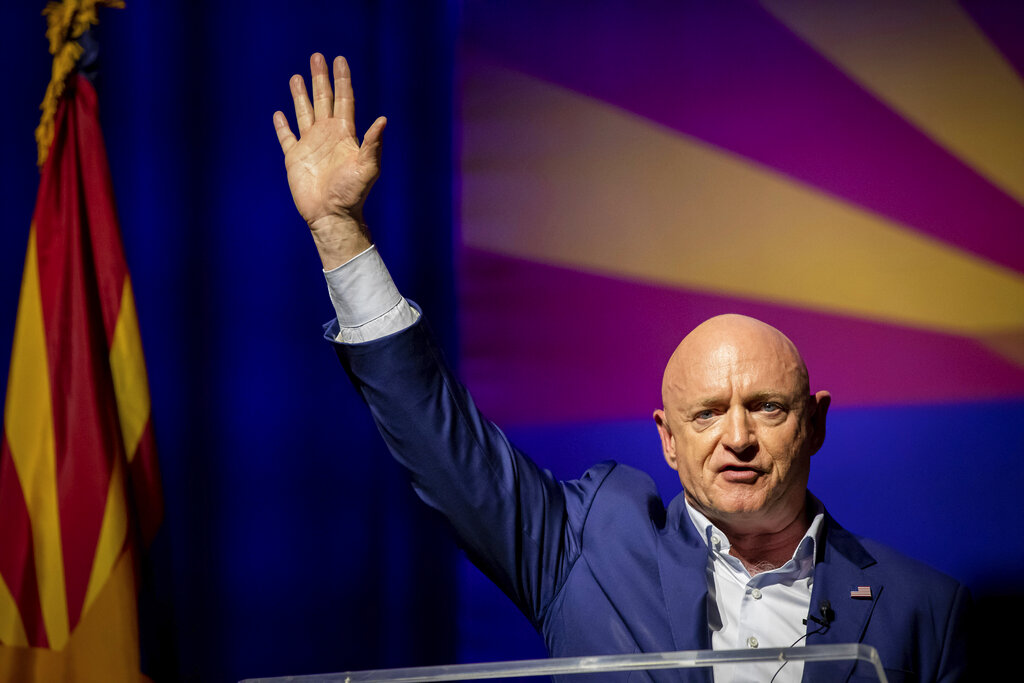
(GA Recorder) — The recent arrests of three organizers behind a group supporting activists bent on stopping a planned Atlanta police training facility have elevated concerns about the government’s response to the intense opposition to the project, which moved forward with a pivotal vote early Tuesday morning.
The three organizers – Adele Maclean, Savannah Patterson, and Marlon Scott Kautz – were arrested Wednesday at an Atlanta home known locally as the “teardown house” and charged with charity fraud and money laundering for their work with the Atlanta Solidarity Fund.
But the SWAT-style raid just days before Monday’s City Council vote on the project was immediately met with alarm by those troubled by the implications for free speech. The arrests also happened amid new revelations that the project in south DeKalb County would cost taxpayers more than city officials have said.

The proposed training facility, known to detractors as Cop City, has been contentious since first proposed in 2021. The project illustrates the divided reaction to the 2020 summer protests following the killing of George Floyd, with proponents saying new facilities will help police better serve the public and opponents arguing that the plan will result in a more militarized police force that will disproportionately harm minority communities. Other protesters also say the facility, planned for a large wooded area, will have dire environmental consequences.
“It seems like these arrests were made very strategically and in a high-profile manner to send a message that you run a risk if you associate with the Defend the Forest protesters,” said Clare Norins, director of the University of Georgia School of Law’s First Amendment Clinic. “So I think that is chilling on people’s right to support the protesters in lawful ways, of course, and to associate with the Stop Cop City movement.”
Those concerns have only grown since last week, with more groups and elected officials questioning the motivation and the grounds for the arrests. Several speakers during hours of public comment at City Hall Monday also blasted the arrests as an attempt to quell dissent, and some City Council members condemned the arrests even as they supported the overall project.
“I think most of my colleagues agree with this – I don’t speak for them – but we were equally disturbed by the arrest of the Atlanta Solidarity Fund members. It is chilling, and it calls into question the health of our democracy and civil society,” Councilman Amir Farokhi said early Tuesday morning.
Georgia U.S. Sens. Jon Ossoff and Raphael Warnock both expressed unease with the arrests in comments posted to Twitter Sunday and said they are monitoring the situation as it unfolds in the courts.
“These tactics, coupled with the limited public information provided so far, can have a chilling effect on nonviolent, constitutionally-protected free speech activities those of us in the fight for justice have been engaged in for years,” Warnock said.
Ossoff said the prosecution “demands scrutiny.”
“It is imperative that the response of government to the violent few not intimidate or infringe on the Constitutional rights of those engaged in nonviolent protest and civil disobedience,” he said.
The two highest-profile Georgia Democrats are part of a growing number of elected officials raising questions about the charges.
“The sad reality is this is now bigger than just a local issue,” state Rep. Ruwa Romman, a Duluth Democrat, said to council members Monday as she urged them to table the vote.

“If you approve this project, you take a side. You side with those who are undermining progress for the sake of their own authority. The means by which we protect the powerless, the institutions that help our neighbors navigate the increasingly punitive, expensive and excessively convoluted legal system, are at risk. Today, it’s the bail fund. Tomorrow it’ll be abortion funds.”
Atlanta Mayor Andre Dickens and many of his fellow Democrats on the Atlanta City Council have voted to keep the project on track to be developed at key points along the way to Monday’s funding decision. The council approved funding for the project with an 11-4 vote early Tuesday morning. After the vote, the crowd chanted, “Cop City will never be built.”
Meanwhile, the state’s top Republicans have touted the arrests as a crackdown on the violent tactics used by some to derail the project, framing the demonstrators at the site as domestic terrorists.
“As we have said before, we will not rest until we have held accountable every person who has funded, organized, or participated in this violence and intimidation,” Attorney General Chris Carr said last week.
John King, the state’s Republican insurance commissioner and a former police officer, posted a video of him outside of City Hall urging council members to approve the project as opponents slammed the training center as a symbol of the militarization of law enforcement.
“Unfortunately, our senators – Sen. Ossoff and Sen. Warnock – have turned their backs on the police department and their families,” King said in the video.
The case against the bail fund organizers
Carr’s office argued that while the three arrestees performed admirable tasks, such as feeding the hungry and bailing people out of jail, they kept some of their budget a secret from contributors.
“Unbeknownst to people donating to the bail fund, food fund, and other laudable funds, another fund was established known as the Forest Justice Defense Fund,” Kara Richardson, spokesperson for the Attorney General’s office, said in a statement. “Some of the funds that were donated for legitimate purposes were routed to the Forest Justice Defense Fund. The Forest fund has been used to support those occupying the forest, doing violence against others property – and we can see that in the finances. Over $237,000 has been spent supporting the occupation of the DeKalb Woods and the violent acts surrounding it. This $237,000 is controlled by the three defendants.”
Prosecutor John Fowler with the Attorney General’s office echoed those arguments in a DeKalb County bond hearing Friday, but defense attorney Donald Samuel said the state was seeking to punish the three for their protected political speech and the items they spent on were not out of line with what they told donors.
“I mean, $37.11, to build yard signs, I mean, what could be more First Amendment activity than getting materials to build yard signs?” he said. “Or, you know, providing a place for people to live when they get out of jail? The prosecutor spins that as all of this is how they recruit the violent people, but this is exactly what their promotional material talks about, helping people when they get out of jail.”
Judge James Altman seemed sympathetic to Samuel’s arguments. He released the three organizers each on $15,000 bonds after saying he did not find the allegations “real impressive.”
“Mr. Fowler, this is only the first stage of criminal prosecution. What is going to turn up in the later stages to put meat on some of these bones? I don’t know,” he said. “At the same time, I’m concerned about some of those same things that Mr. Samuel mentions about the line between legitimate dissent and legitimate, free speech, whether that speech is something we like or not.”
Also concerning to free speech advocates was a line in the accused’s warrants calling Defend the Atlanta Forest “a group classified by the United States Department of Homeland Security as Domestic Violent Extremists.”
A DHS spokesman said the department “does not classify or designate any groups as domestic violent extremists.”
“There are laws that prohibit material support to terrorist groups, but what we’re seeing here is basically any kind of support to anybody associated with the protest movement,” Norins said. “Whether you’re just supporting peaceful protest or nonviolent protest or not, it’s like everybody’s being painted with the same brush and being labeled a domestic terrorist.”
“That’s really concerning,” she added. “Because while there may be an element that is engaging in violence or unlawful conduct, that’s certainly not all of the protesters, and protest and the right to speak out against government activity and to criticize government activity, in this case, the plans to build the police training facility, that’s a very sacred right under the First Amendment. And when you start to arrest people who are just supporting protesters by, for instance, providing money for them to bond out of jail, that really starts to jeopardize those rights of association.”
A groundswell of opposition
Many of those gathered at Atlanta City Hall for the council meeting said their local government did little to assuage their worries about their protest rights.

By the time the City Council gaveled in, hundreds of people had packed into Atlanta City Hall, and hundreds more lined up outside, hoping to speak to council members or watch the proceedings in the air-conditioned City Hall lobby. Most of the people who spoke said they were opposed to the project.
Security said the building reached maximum capacity, and those outside had to wait for people to leave before they could be let in. Volunteers offered food and water to those waiting in the sun.
The council cut off the sign-up process for public comment with about 350 names on the list, citing a code provision that limits public comment to those signed up once speakers have started having their say. But another list was created to accommodate people for a second round of public comment after the vote.
Overall, the council heard nearly 15 hours of public comment in a marathon session that concluded just before dawn Tuesday morning. The council also heard from hundreds of people during another marathon public comment session last month.
Many of the organizers expressed frustrations Monday.
“City Hall closed down public services today,” said Bentley Hudgins, an organizer who ran for the state Legislature as a Democrat in 2022. “They’re not allowing people to bring water in. They’re not even letting people in right now with claims that City Hall’s capacity is (full) for this entire building. They’ve closed off sections of City Hall so that we can’t have more people in. They only had one sign up sheet at one point, so people had to line up single file to sign up one at a time.”

“So while people should feel confident that the community is listening to them and that we hear each other, I am not confident that people on the Atlanta City Council are listening to the constituency,” Hudgins added.
At around 2:30, chants of ‘Let us in’ could be heard from the crowd outside, as well as occasional thumps from people banging on glass doors.
Those on the inside matched them, shouting ‘Let them in,’ as police mustered at the doorways to stop people from barging through. The situation was tense but did not escalate beyond shouting.
Community organizer Kamau Franklin estimated there were about 200 or 300 people on the outside, some of whom hoped to make public comments.
“We think these are delay tactics, these are stalling tactics,” he said. “They are getting people frustrated, rightfully so, because they came down here to voice their opinions and to talk about Cop City, but they’re not letting people in.”






